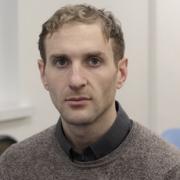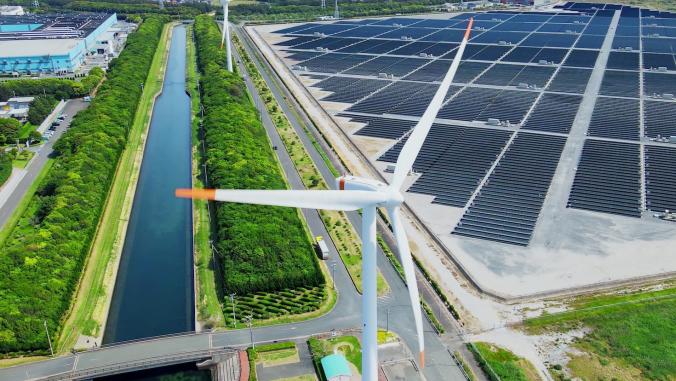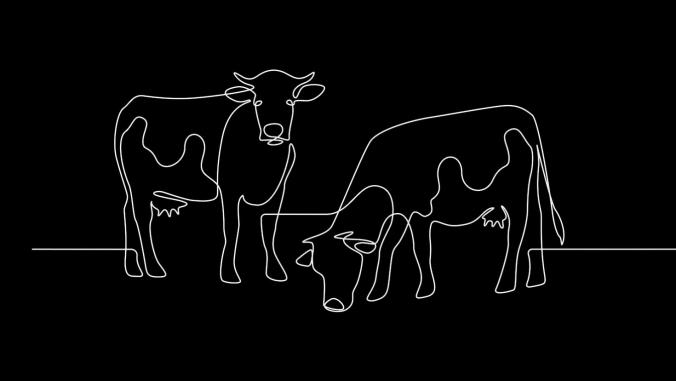If it wasn't already complicated enough trying to locate, measure, publicly disclose and — crucially — act to reduce the business risks arising from climate impacts and the accelerating transition to a net zero economy, well, unfortunately that's not even the half of it.
Both the physical risks from climate impacts, and the disruptive risks posed by market and regulatory shifts as the economy decarbonizes, are steadily becoming top concerns for investors and financial regulators around the world. And, given the vast amounts of carbon intensive infrastructure the world over that remains on course to become stranded assets for companies which fail to spot such risks, such belated awareness is hugely welcome.
In the past month alone, the G7 economies agreed to implement requirements for firms to disclose their climate risks, and to work together towards standardizing these rules across the U.K., USA, Germany, France, Italy, Japan and Canada. In the U.K., climate risk disclosure requirements for larger firms and financial organizations are set to begin coming into force from October. It marks a slow-burning success story for the Taskforce on Climate-related Financial Disclosures (TCFD), the Mark Carney-backed initiative established by the Financial Stability Board in 2015. The risk disclosure guidelines produced by the TCFD in 2017 have since won the backing of thousands of companies, investors and governments worldwide, including financial institutions responsible for assets worth well over $150 trillion.
Yet, even forward-thinking investors and businesses which have moved to address the risks they face from climate change could still be dangerously in the dark about an equally large, and arguably more complicated, set of threats: Those posed by the destruction of the natural world.
Indeed, more than half of the world's economic output equivalent to $44 trillion is either moderately or highly dependent on nature, according to the World Economic Forum (WEF), and the extinction of huge numbers of plants and animals poses a major threat to corporate and financial stability. At the same time, meanwhile, nature-positive action to reverse the damage to the environment could generate up to $10.1 trillion in annual business value and create 395 million jobs by 2030, the global think tank has estimated. Given the global supply chains on which societies and companies rely are set to face increasing threats not just from climate change, but also the escalating decay of the planet's ecosystems, it stands to reason that organizations urgently need to understand these risks, then act to mitigate them.
That is why the Taskforce on Nature-related Financial Disclosures (TNFD) was set up last year, and is aiming to follow in the footsteps of the TCFD by coming up with a set of guidelines for companies, investors and other organization to assess and act on the risks posed to their businesses by the destruction of the natural world. It is hoping to have its first set of guidelines ready to go in just two years from now.
Yet, as the TNFD's recently-appointed co-chair David Craig points out, this is no easy feat. "Biodiversity and nature is a lot more complex than climate, in terms of financial disclosures," he said.
It has taken decades to get there, but businesses, investors, and regulators are beginning to coalesce around widely agreed, science-based standards for measuring and disclosing greenhouse gas emissions from both their core operations and value chains, Craig reasons. Moreover, with CO2 emissions it is possible to make cross-industry comparisons between different companies' impacts.
"Whereas when you look at nature, biodiversity, water use and land use, it's very hard to create the comparable to 'net zero'," Craig continued. "What does that look like? The measures could be different depending on the industry that you're in, or the part of the world that you're in. An activity in one part of the world might be OK, but elsewhere, or on another type of landscape, it might not be. So, actually, geolocation becomes far more important."
But having originally trained as an engineer, Craig said he is "always fascinated by solving complex problems in a simple way." He is therefore eager to rise to the challenge, and his vast experience in data and risk analysis should serve him well. The British businessman's 30-year career includes more than a decade within Thomson Reuters's risk division, from which he helped establish Refinitiv in 2018, now one of the world's latest providers of data, insights and technology to financial markets.
But after three years as CEO, Craig is set to leave Refinitiv later this year following London Stock Exchange Group's (LSEG)'s takeover, completed at the start of 2021. And now, as well as sitting on the World Economic Forum's Banking Governors Board and the U.K. government's Trade Advisory Group for Financial Services — among numerous other roles — Craig is to help drive the next phase of the TNFD's work. He and Taskforce co-chair Elizabeth Maruma Mrema, executive secretary for the UN Convention on Biological Diversity (CBD), will be working alongside 30 TNFD member companies over the next two years to develop the risk disclosure guidelines.
"I've worked in financial services and data for 30 years now, which has made me realize that if you shift financial services and get them to adopt a risk-based approach, it can actually create enormous change," Craig explained. "And I think that's the real thrust behind the TNFD and my involvement. What I think I bring to this is how the financial services and corporates work together to measure, disclose and shift finance into those areas so that you're: a) understanding your nature-related risk and managing it; and b) also understanding the impact that we're having on nature."
The TNFD certainly will have plenty of experience and expertise to draw on. Global Canopy, the UN Development Program (UNDP), the UN Environment Program Finance Initiative (UNEP FI), and WWF are also founding partners of the Taskforce, while others backing the initiative include the UK and Swiss governments, KPMG, H&M Group, Credit Suisse, Wells Fargo Asset Management, and Banque de France, AXA, DBS Bank, Rabobank, Standard Chartered, Sorebrand and Yes Bank.
Yet amid much "aggressive curiosity" around the Taskforce's work, and for all the complexity inherent in assessing and disclosing vast and varying nature-related risks, Craig says his aim is to keep the process of developing universal guidelines as straight-forward and streamlined as possible.
"The planet has got a crisis, and if you let complexity get in the way of solving it, we're not going to get there," he warns. "We have to put something together that's simple."
Unfortunately, time isn't on the TNFD's side. As with climate risks, nature-related threats are already affecting the economy — the COVID-19 pandemic, a zoonotic disease thought to derive from animals, being the most pertinent example — and therefore urgently need addressing. What's more, climate targets cannot be delivered upon unless destruction of the natural world and accompanying damage to natural carbon sinks is also halted. They are two sides of the same coin. So given it has taken six years from the establishment of the TCFD to the still relatively modest levels of adoption of its guidelines it currently enjoys — can the world really afford to wait another six years for TNFD guidelines to reach the same level of traction, when all the while planetary boundaries are being threatened?
"I'm not saying this is going to be easy or solvable by 2023, but I think we can make a lot of progress," Craig argued. "I think we have to try to not be perfect and solve everything in that timeframe, and to hit on the most important areas."
The plan, he explains, is to begin "tackling the biggest areas first" by developing rules and guidelines for those sectors of the economy with the biggest nature impacts, such as agriculture, food production and fishing. "The good news is, it's not like companies that are in food production, fishing — or others — don't have a huge amount of expertise and understanding already," he explained. "There's a lot of expertise out there, and a lot of new technologies being developed around food and land use. So I think bringing corporates into this debate is very, very important."
I think we have to try to not be perfect and solve everything in that timeframe, and to hit on the most important areas.
The TNFD development process, for all its complexities and time-constraints, also holds a number of other key advantages, according to Craig. For one, following in the footsteps of the TCFDs means the TNFD is likely to benefit from a bedrock of awareness within financial and business circles of the materiality of environmental risks. Administratively speaking, too, the TNFD can harness much of the groundwork that already has been carried out by the TCFD process. "We've been very honest that we're going to borrow, reuse, build on as much of the TCFD as possible," Craig explained.
Further enhancing the TCFD's chances of rapid progress is the sheer visibility of nature-related risks, which are far simpler to spot and recognize than the usually more indirect impacts of greenhouse gas emissions, Craig argued. That makes it easier to prove — and take action against — the harm that a company's actions might be causing through deforestation, land-use change or water pollution, for example.
"I think the sentiment and the understanding of the problems is far higher [for nature risk], but I think the data complexity is larger, I'll admit that," he said. "I think we will get to a common framework by 2023, which will address some of the highest priority issues, but I don't think they'll be comprehensive. That will take longer."
Asked whether he would support the TNFD guidelines, when they do emerge, becoming mandatory for companies to disclose in line across key global economies — just as the TCFDs are increasingly becoming — Craig is reluctant to call for a regulatory approach at this stage. At least to begin with, he favors a more voluntary approach. "I'd rather say 'let's get the market driving this in framework that is simple — that can be adopted,'" Craig said.
So, with two years to go before the guidelines emerge, what can progressive firms do in the meantime to get ahead of the game on nature risk management?
"The risks are very serious, depending on the industry and the activity that a business is in, and companies should start working on this now," Craig responded. "The TNFD framework will come, but don't wait for it. Companies with a good understanding of their upstream dependencies and downstream effects should actually start looking at that now, and actually starting putting policies in place."
He highlights the growing numbers of companies taking account of their water dependencies and risks in certain regions as an example. Such risks are also increasingly a priority for risk management teams, rather than just sustainability departments, and as such companies "shouldn't wait around to start building expertise in this space," he added.
The pressure — on nature, climate, supply chains, companies, investors and the Taskforce itself — is intensifying. Less than eight years are left for the world to more or less halve greenhouse gas emissions if the chances of limiting global warming to 1.5C are to be kept alive, a goal which also requires an end to deforestation and reversal of the depletion of the planet's critical natural resources. Given the worsening state of the world's climate and biodiversity, can Craig envisage the economy operating on a planet-friendly basis in the near future?
"Im an optimist," he reflected. "There's real issues we have to address, but I think the technology is there, and — if we can do this right — the money should be there to reinvest, and it should be net positive for jobs. It has become really clear to me that we can't degrade the world's ecosystems, species, food supplies, ocean acidity and other things, and then carry on producing the way we are. There really has to be a way of co-existing, and I think that's the realization that people are really waking up to now, and climate change has helped trigger that.
"I think what we're realizing is not just that it's great to have all these wonderful species around the world for our own natural habitat, but we're actually really dependent on them. That to me signals growing awareness that is happening around the world."
Awareness is certainly a crucial start. It is now up to the TNFD to try and help turn that growing awareness of nature-related risks into corporate action.






